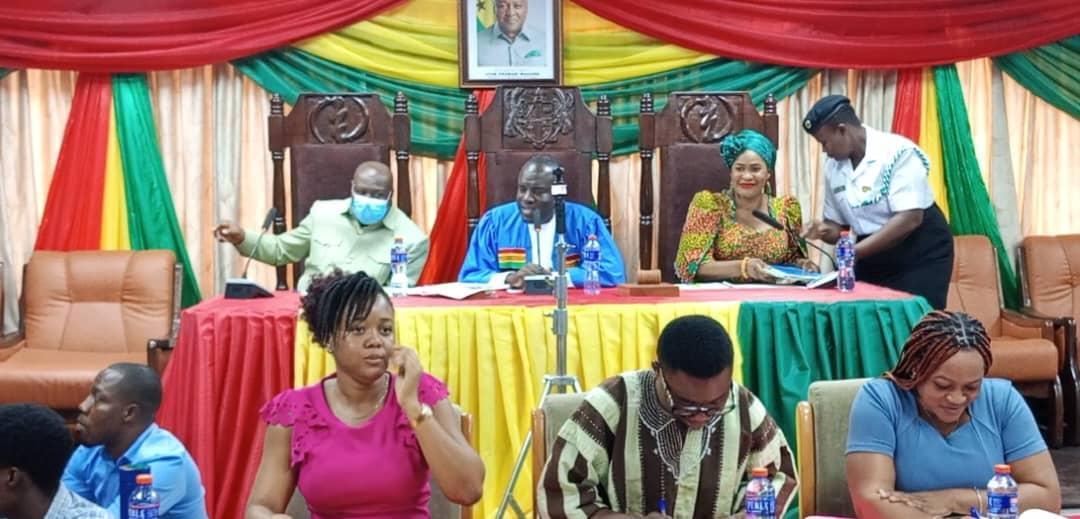Africa-Press – Ghana. As of June 2025, the Tema Metropolitan Assembly (TMA) has collected only 36 per cent of its estimated internally generated fund (IGF) of GHS 37.6 million for 2025.
Ms Ebi Bright, the Tema Metropolitan Chief Executive, revealed this in her first sessional address during a general assembly meeting.
Ms Bright disclosed that by March this year, the assembly had collected only GHS 5 million, representing a mere 13.6 per cent, adding, however, that by June, through focused effort, they had reached GHS 13.5 million, which is still 36 per cent of the annual target.
According to her, this improvement shows what is possible when they commit to change, acknowledging the exceptional work of the Metropolitan Finance Officer, Madam Akua Bonsu-Owu, for making significant contributions to improving the assembly’s revenue collection.
She also commended other departments for working hard to overcome TMA’s revenue generation and collection challenges.
She further noted that the National Democratic Congress (NDC) government has demonstrated its commitment to decentralisation through unprecedented action, disclosing that the previous District Assemblies Common Fund allocation that the assembly could directly control was a mere GHS 2,875,000 and has now increased to GHS 28.6 million—a tenfold increase.
“As promised by His Excellency the President to release 80% of the DACF to MMDAs, this means real money in our hands to drive development. To date, GHS 3 million for the first quarter has hit our accounts, with the second quarter releases transferred pending submission of our Work and Disbursement Plan. This has not happened during the last eight years, and with this commitment, more projects will be executed as planned,” she said.
The MCE stated that only 20.4 per cent of the assembly’s 2025 budget goes to capital investment, which is still below the 30 per cent target she envisioned.
She noted that the TMA faces a landscape littered with uncompleted projects, a testament to the challenges of multi-year implementation without adequate funding continuity.
She added that basic infrastructure, including roads, drains, sewage systems, and streetlights, was deteriorating daily, adding that Tema’s sewage infrastructure, built decades ago, could not cope with its current population.
“We will increase our internally generated funds by 10 times within my tenure. This is not fantasy—it is mathematics backed by strategy. Every payment point will be digitised, eliminating cash leakages. For instance, the TMA is currently able to collect only 10-30% of sewer fees due. We have dedicated staff suffocated by poor systems. Our revenue collectors have targets set far below our potential.”
Ms Bright said that more critically, they estimated that at least 40 per cent of their revenue was being leaked because they lacked effective tracking systems, adding that a revenue collector could receive a fee or fine and divert it because the assembly has no mechanism to know what has been collected in real time.
She gave the assurance that they would identify new revenue streams, such as tolls and parking fees for haulage trucks that engage in economic activities around the port city, while transforming the city’s markets into revenue-generating assets through partnerships with local and international investors, announcing that Turkish, Chinese, Middle Eastern, African, and EU businesses have already expressed interest in redesigning and redeveloping the markets.
For More News And Analysis About Ghana Follow Africa-Press







